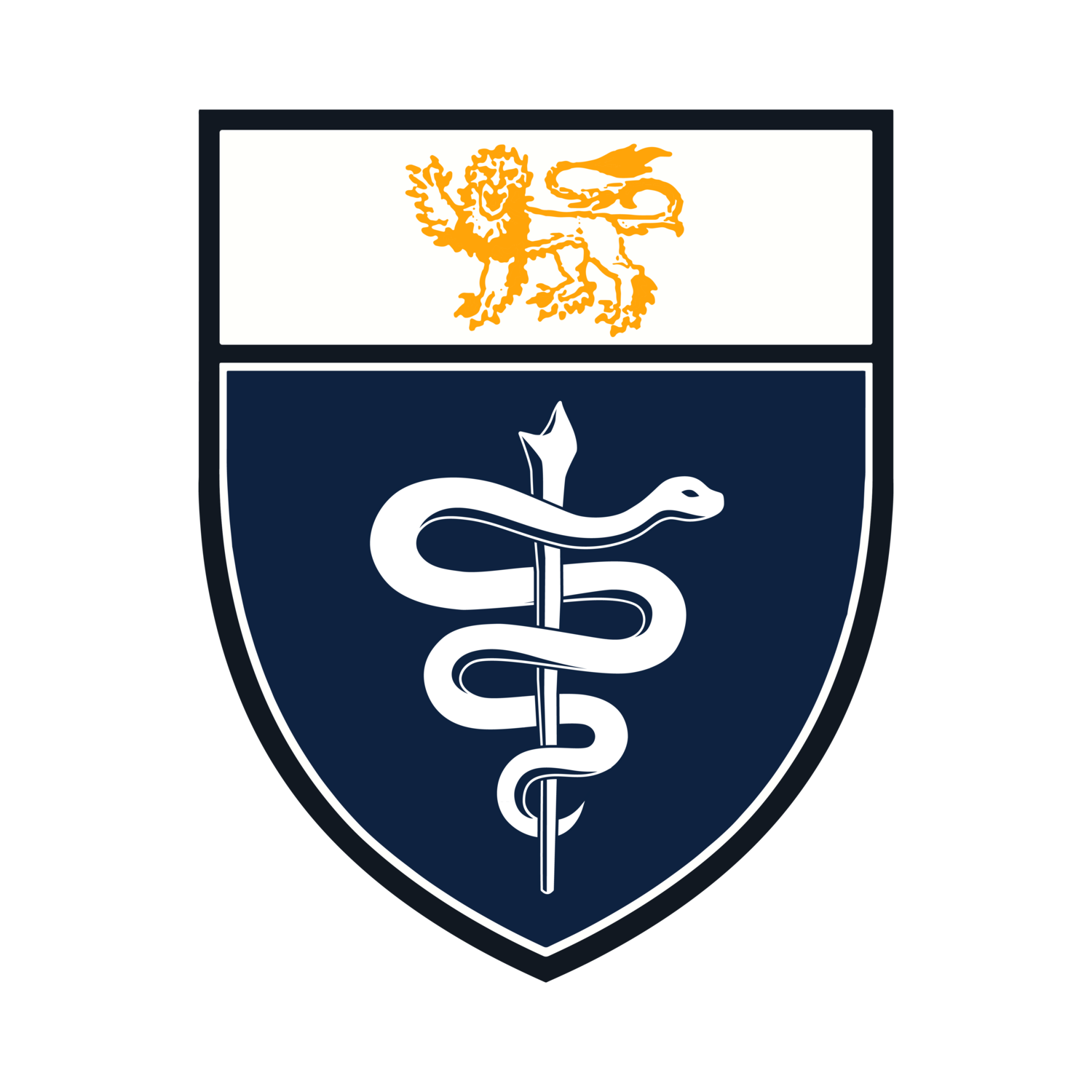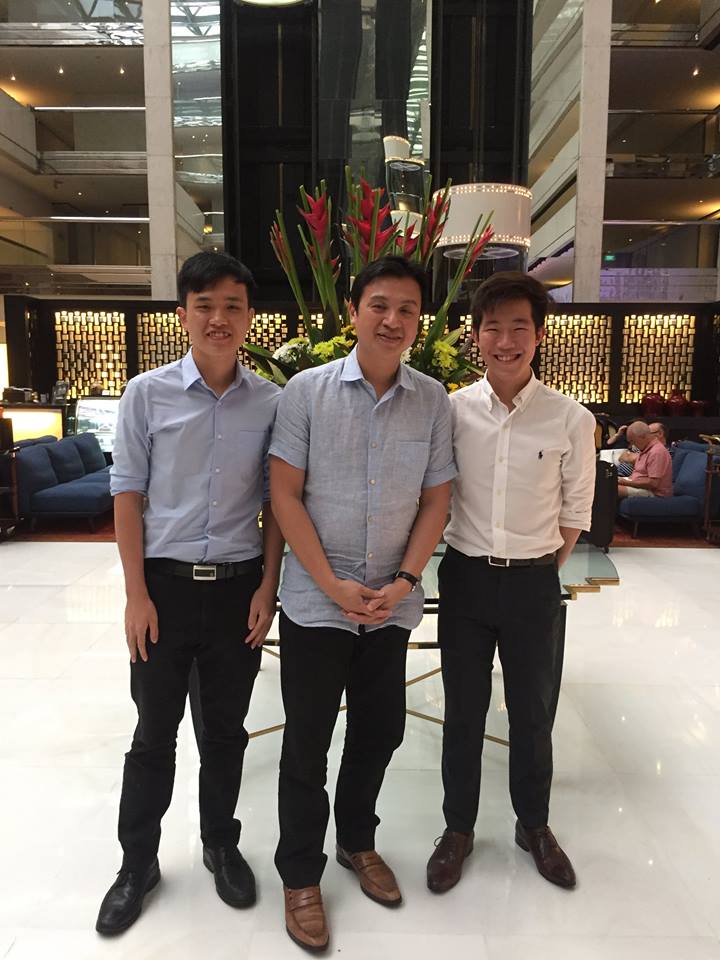What were some memorable things that you did back in medical school?
When I was a pre-clinical student, I was mainly involved in MedSoc, the Students’ Union, and in those days, what we call the cultural activities and community service (CACS) clubs. Also, I played a bit of sports and I was in NUS Eusoff Hall. I think my experience with the Students’ Union and MedSoc was quite interesting because we had quite a few big events back then. One of which I remember was when there were concerns over the raising of fees for students. I think a lot of us also came from quite humble backgrounds back then so cost was as always a big issue. Hence, at that time, the Students’ Union and MedSoc tried really hard to see whether we could moderate that. The Students’ Union members still keep close ties and we still meet up and see people all the way back from the very first batch of Student’s Union.
How has serving in Medsoc helped you in your occupation now?
Medsoc is special because it’s the first of that phase of your life, of tertiary education, the first sort of organisation when you feel you’re a bit more adult. Because let’s say you’re in students’ council, there is some teacher who is in charge of it or the vice-principal, you can hold your meetings, whatever you do but you still have to ask the vice-principal. Medsoc not so much, you can determine a lot of things, and you’re a bit more accountable so in that sense it’s very special. In terms of personal development I think it’s good as it’s a first sort of opportunity that you get to run an organisation with a social/communal bent and learn how to handle all the responsibilities that come with it.
How do you juggle all your commitments?
I think all of us are busy, be it life as a student or as an adult. I’m not the best multi-tasker per se but I think after awhile you’ll come to some sort of equilibrium -- when you come to realise what you can do and how to manage the load. Your roles change also. With regards to my MP and government work, we have quite a unique system here in Singapore whereby the sitting members of parliament all have their own work. This is good in the sense that, you are rooted to the society and you are not doing politics as a means to an end. You are not doing politics alone and you bring certain specialties and perspectives to your work and people can identify with that. So I think it’s a personal decision that everybody has to make. There are sacrifices obviously but anything that you do normally would have some tradeoffs.
Fun Fact?
I’m very stiff, so I used to fail my physical fitness because of that sit and reach, which I was very happy to recommend its exclusion when I became an orthopaedic surgeon and I could say that it has absolutely no bearing whatsoever on physical fitness. That was one of the key moments.
Why did you choose to study Medicine?
I mean there are many reasons. I never envisioned myself sitting in the office doing work because that’s not what I enjoy. For me, I like talking to people and trying to fix and solve the problems. Also, I felt that out of all the jobs that one can take, if one becomes a doctor, then he can be assured that he would have had helped one person in his life. Medicine is also one of those things where you don’t have to worry about whether the person [you are helping] is good or bad. Hence, I find that Medicine is okay because even if I’m useless, I’m sure I can at least help one person and that my life will not be wasted.
How has your training as a doctor helped you or affected you as an MP?
Oh, very much so. Because first of all a lot of doctors are rooted in the community. For instance, I work in SGH and many of my Queenstown residents were my patients and they know me. When you treat a patient, their friends and family will come to know you as well -- it’s just this six degrees of separation thing. But I think the main thing is that we find it easier to talk to people and it becomes a part of our life. In Singapore, we have Meet-the-People Sessions, where residents come to you with their problems, and then you talk to them. It is exactly like running a clinic, but it is harder because social problems are harder to treat. Personally, as a doctor, most of the times when patients come to me with orthopaedic issues, I’m very sure I can treat it and I can treat it well. I can give them chances of success, complications etc and I can sort it out for them. However, social issues are not so easy, but the mindset is still the same. In Medicine, your main idea is that you may not be able to treat everything, but you always want to give comfort. Thus, the same thing applies when it comes to being an MP -- some problems cannot be solved but you need to remember to always provide comfort. In fact, did you know that the meet-the-people sessions in the UK are called surgeries? I think being a doctor is still quite a respected profession, and health is always something that everybody can relate to, so a lot of them come to see me just for health problems and it’s a fairly neutral issue, I talk to them, give them some advice, run some free clinics for them. So it works quite well.
Why did you choose to study medicine locally?
It’s for a practical reason because I knew that studying overseas would have been a big strain on my parents financially and it’s not fair to my brother. Furthermore, I was also offered the scholarship to study Medicine in NUS, which was quite a well respected school even in those days. Secondly, I feel that it’s always good to practise Medicine where you intend to work in order to gain some perspectives because I mean the Medicine that’s practised in the US is very different from how it is practised in Singapore. Moreover, most of us also do spend some time abroad to get the experience that we need later on in our training.
Was there anything that you regretted?
Uh… nothing very much. I think my character is that I try not to regret anything so my outlook in life is a bit more positive. I mean there’s no point in regretting. Everything you do, whether good or bad, will always add to your life experiences and will always serve useful in something, so i don’t really have any… well maybe sometimes you just wish you had a bit more time to savour things because those were good periods in your life. Sometimes things go by so quickly that you wish you had stopped a little bit to smell the roses and you always wish you had more time to spend with people you care about. I’ve some friends who unfortunately have passed on, or they’ve gone away… even my grandma who’s passed on, I wish I had more time spent time with them.
Advice for medical students?
When you’re doing something, just remember to focus on your role because there will always be a lot of distractions -- a lot of things that you need to do, so you must always have a clear idea of what your job is. I always tell people to do something that they enjoy and not something that others tell them that they should be doing. Try and do what you enjoy, then you will do well in it. Thirdly, do not get too worked up about being exceptional. It’s not important to be exceptional and sometimes it is too stressful. If you can, you should be excellent in what you do, but it doesn’t have to be “exceptional”. Of course I’m not saying that you shouldn’t strive to be exceptional, what I’m saying is that,you shouldn’t be too worked up or worried if you’re not the best because it doesn’t matter. You just need to be good at what you do and happy with what you’re doing. Once you get to my age you will understand that. Of course, like what the Prime Minister has said last year, you should never be complacent. I think this is true too, and this means that you still need to have a little bit of drive. Otherwise, if you just stay there, sometimes you tend to go down. Hence, I feel that you don’t have to be too worried if you’re not exceptional. As long as you do good work, excellent work, that should be fine.



